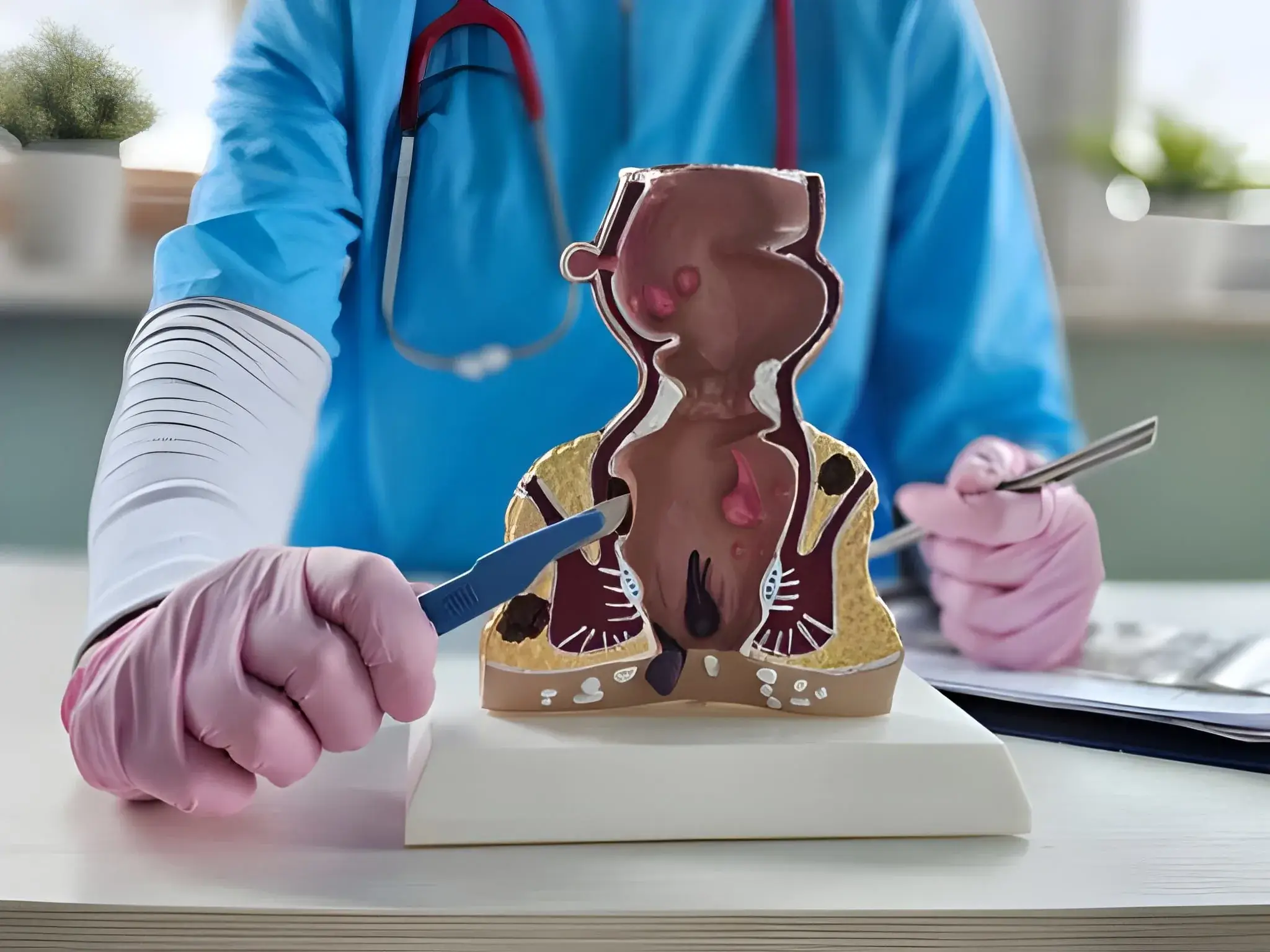Frequently Asked Questions
An anal fissure is a small tear in the lining of the anus that causes pain, bleeding, and discomfort during bowel movements.
They can be caused by passing hard stools, constipation, chronic diarrhea, childbirth, or inflammation of the anal canal.
Symptoms include sharp pain during bowel movements, bright red blood on the stool or toilet paper, and itching or irritation around the anus.
Diagnosis is usually through a physical examination. In some cases, anoscopy or other tests may be needed to rule out other conditions.
Treatment includes increasing fiber and fluids, sitz baths, topical creams, pain relief, and in chronic cases, procedures like Botox injections or surgery.
Acute fissures often heal within a few weeks with home care, but chronic fissures may require medical intervention.
Yes, a high-fiber diet, adequate hydration, and avoiding straining during bowel movements can reduce the risk of fissures.
No, surgery is only recommended for chronic fissures that do not respond to conservative or medical treatments.
Yes, fissures can recur, especially if constipation, diarrhea, or straining is not addressed.
Yes, they often cause sharp, burning pain during and shortly after bowel movements.

